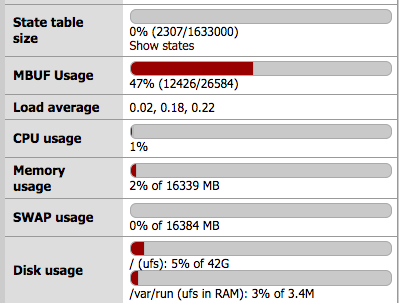brilliant, that works as well,
now that also means i need to look into pfsence
uhh,
what do you guys think would work best ?
like a whole new little mini itx system ?
if i wanna cheap out for now,i could grab one of those network boxes, and build my happy nerd lair part by part lateer
considering the FASTEST net in the area currently is 1 Megabyte/s we really dont need to get crazy YET
although, after we take the output and plug it into a switch, that switch can be gigabit, and thus keep our lan transfers happy (i do enjoy me my steam game streaming to a busted ass old laptop)
we sadly do not have any old random computers laying about,
so whatever we choose, it will have to be a custom build solution.
since this will have to take the place of a router, itll have to be an always-on thing
were going to have 4 possibly 5 computer users in the home, possibly split into three ish room, each with video game consoles and computers, and everyone with possibly at some point a laptop and cellphones.
id prefer to maintain a local network speed of at least gigabit, for file sharing and game steaming and whatnot,
back at my old place before we moved each modem supported and pulled nearly 200 megabits down,
so if that level of service is ever upgraded in this area, ((needles ca))
then id like a system that could handle 2x 200 meg connections
(or god forbit we get lucky or something and even faster net rolls in.
there is a fiber backbone somewhere near us in town or so says the rumor, but the cable dude, said that the bandwidth would still cost nearly $50 a meg.)
although at least for a year we wont have to worry about that.
of course id WANT ten gig for all the things bwuahaha
but i dont shit bricks of gold, so thats just a pipedream
somehow setup a like 2gb ramcache or something for massive local data transfers, sigh. oh dreams
with the pfsence, we can set it up so that it caches all downloads ?
i have that idea, because we ALL use steam, and with our super shit internet, it would be great to download, say skyrim
on my pc,
and if someone ELSE in the house sees how cool it is and decides to buy it, then their steam would download from the copy on the pfsence ? at gigabt speed?

